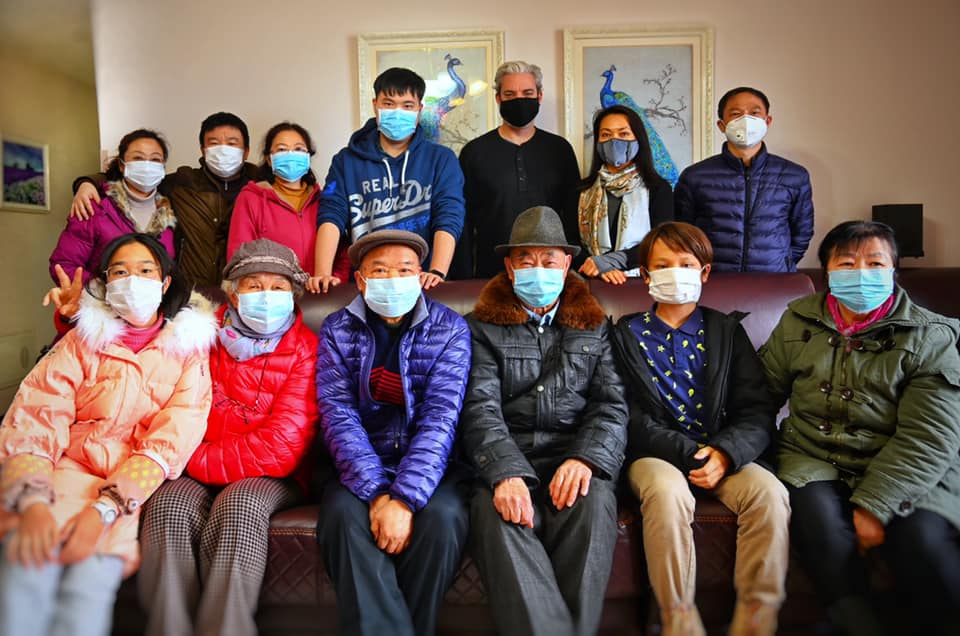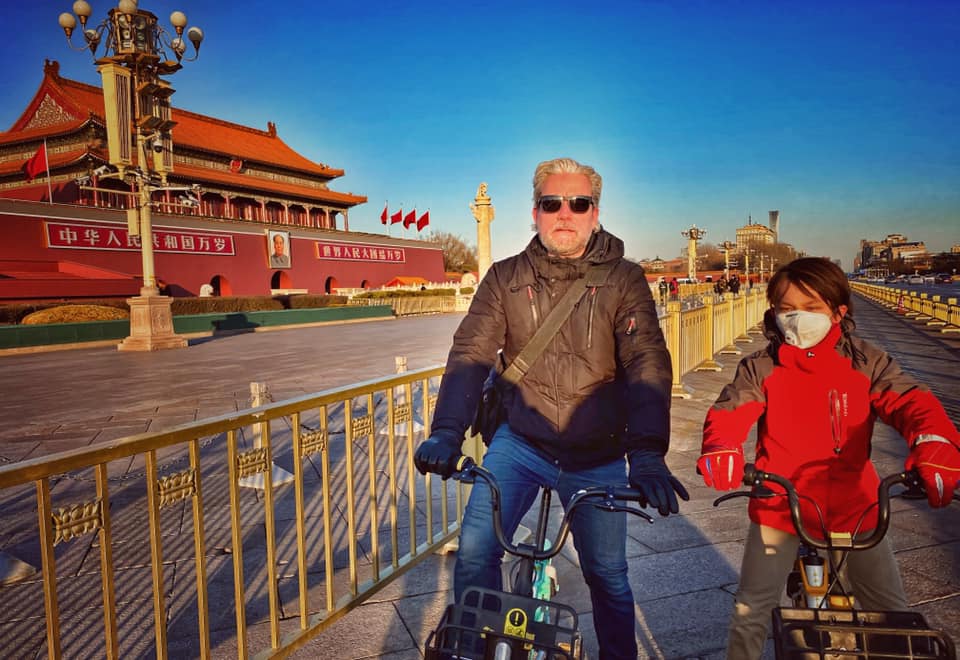Voices: China – winning against COVID-19, but losing the PR war

A few minutes every morning is all you need.
Stay up to date on the world's Headlines and Human Stories. It's fun, it's factual, it's fluff-free.
It started as a bit of fun. But 33 videos later, I had inadvertently created one of the most comprehensive “in country” insights into the Chinese handling of COVID-19. My vlogging started on a holiday in Chongqing in January, when quarantine rules were just introduced and streets were becoming empty. It ended on September 3, after my family and I had left Shanghai and arrived at a Sydney quarantine hotel.
All my video reports had been positive. This was in contrast to reports by many Western media outlets. I was interviewed multiple times by the Australian Broadcasting Corporation (ABC) while in Chongqing and Beijing to shed light on the rumors. The lack of trusted information coming out of China combined with the virality of conspiracy theories had created a vacuum, now filled with mis- and disinformation. The authenticity of one viral video of police shooting the “infected” in the streets, akin to a zombie flick, was one such question by the radio host. This case was easy to dispel, since the virus had appeared in the middle of China’s winter and yet the leaves of the deciduous trees in the video were full and green. Another rumor was that millions of mobile phones had been disconnected, as if death was the only explanation, rather than mass unemployment.
A few weeks later rumors regarding the “true” source started. Was it a bioweapon of the Chinese or the United States? Or was it a zoonotic virus that had jumped from animal to humans in a Hubei province marketplace? Interestingly, the finger pointing wasn’t just between China and the world, but within China. Those from Wuhan, the capital of Hubei where the virus was first reported, were extensively criticized in Chinese social media. Most of China was angry at the mishandling by local government officials and most Chinese couldn’t understand why anyone would eat bats.
In my videos, I was reporting that masks were now mandatory, shops and restaurants were closed, residential compounds sealed off to nonresidents and couriers. Multiple tracking apps, specific to each province, were also required to enter office buildings. I also highlighted the remarkable speed at which this technology and manpower was rolled out and how readily the Chinese complied.
Many of my friends and family saw this authoritative management as a negative. They were concerned about the danger, from both the virus and the Chinese Communist Party’s heavy handedness. But then in March, that danger flipped. Members of two Formula 1 pit crews preparing for the Melbourne Grand Prix were confirmed as infected with COVID-19 and a few days later the entire event was canceled. For Australia, that was the first domino. The second was the cancellation of the Melbourne International Comedy Festival (MICF), proving that the virus was no longer just a China problem.
The cancellation of the MICF was a particularly bitter blow. As an entrepreneur with interests in both Australia and China, I was hit twice. My Australian stand-up comedy school and production company, the School of Hard Knock Knocks, was on track to have its best year ever and sell out all dates in 2020. Now, as each new case of the virus was reported in Australian media, this was unlikely. In the end, I closed down a 90-person office in China and lost six months of revenue in Australia.
Then China bounced back. The restrictions worked. Businesses, restaurants, schools and even Shanghai Disneyland reopened. Many who had lost jobs were rehired and traffic jams and congested public transport returned. But still the rumors about China’s collapse continued.

The ABC called back, asking about Beijing’s “second wave.” The reality was that 40 people within Beijing’s 20 million population had been infected. But unlike in my home state of Victoria, where an outbreak quickly ballooned causing a statewide stage 4 lockdown, Beijing was able to contain the outbreak to a few residential blocks, without the need of citywide restrictions. Now there was no doubt that China’s virus control was the world’s best and something the West should be mirroring.
But that did not happen. While this was the perfect opportunity for China to rebrand itself as both transparent and humble, the technocratic Chinese Communist Party (CCP), one dominated by engineers and scientists, seriously undervalued this opportunity to demonstrate diplomatic soft skills and remove the shroud of distrust. Instead, the CCP has been ‘lì hai’ (厉害) – difficult to work with.
Coincidently, while also proving my point, on the day I uploaded my last vlog on China’s positive handling of COVID-19, two Australian journalists were rushed out of China after being detained by Chinese state security officers. This is the first time since the 1970s that Australia has had zero correspondents in China. And without truthful reporting, this absence is likely to create a further vacuum to be filled by rumor and distrust. China might have beaten COVID-19, but it’s losing the PR war.
This Voices story was written by Morry Morgan. Morry is an entrepreneur based between Australia and China and the founder of Australia’s stand-up comedy school, The School of Hard Knock Knocks.
Have a story to share? Get in touch at contributors@themilsource.com




Comments ()